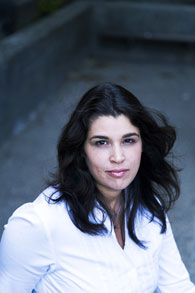To tell the truth
Researcher's work helped change child witness laws
As any regular reader of the Reporter can attest, the work of university researchers is often recognized with prestigious prizes and important grants. There exists another form of recognition: when one's results directly affect important changes to our nation's policies.

Talwar: Out of the mouths of children
Claudio Calligaris
Such was the case for Victoria Talwar, Assistant Professor in the Department of Educational and Counselling Psychology, and her team, whose research in the area of children's social behavior—particularly with respect to their appreciation of truth and lies—has led to a revamping of Canada's child witness laws.
Children asked to testify in court are first submitted to a competency examination that seeks to gauge their readiness to testify by questioning them on their understanding of the situation and assessing their memory capabilities.
Before the changes were enacted, however, they were also questioned about their understanding of the importance of telling the truth in court. The perceived benefit lay in two basic assumptions: (1) ascertaining whether a child could distinguish between truth and lies is an indicator of the reliability of their testimony; and (2) the questioning has a truth promoting effect.
The first assumption, it turned out, was completely off-base, according to Talwar's research. "When we looked at this empirically, what we found was that children's ability to answer these types of questions has no bearing on whether they themselves will tell the truth or a lie about an event," she said. "And when you think about it, that isn't very surprising, given that adults know what lies are and that lies are very bad but it won't stop them from time to time telling a lie."
As such, assuming that a child who understands what a lie is a child who won't tell one holds the to an "unfair burden" that in the end "was of no use to the court." Worse still, those most likely to tell the truth— generally, younger children—were often most likely to be turned away because of their inability to handle the questioning.
The process in fact did little to promote truth telling. What Talwar and her team discovered, however, was that there does exist a surprisingly simple way to increase the likelihood of true testimonies. If asked to promise to tell the truth, children were "much more likely to tell the truth, because they take promises quite seriously. So our recommendation was that while these questions are not useful to the court, asking children to promise to tell the truth was an important improvement"
The results were convincing enough to persuade the federal government to amend the criminal code provisions covering children's testimony. Talwar notes that the legal community is generally receptive to her work, and watching your research at work makes it all the more worthwhile. "There is a great desire from judges and lawyers to know more about the research. Academic journals are important to my career and they're great, but sometimes it's really good to know that you're actually saying it in someplace where it actually will matter to what happens."
Recently, a defense attorney challenged the changes to child witness laws before the Ontario Court of Appeal, claiming that amending the competency exam for children robbed his client of a full and fair defense. But Talwar's research held up under scrutiny—the facts were clear. "They had no other science to arm their argument," she said, and the appeal was rejected, confirming the validity of what she knew from her hours of work to be right and just. "Yeah," she added, "it makes you feel good."
To learn more about the Talwar Research Team's ongoing work, visit www.talwarresearch.com.

